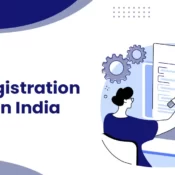
Time Limit to Avail Input Tax Credit
Input Tax Credit in India is a crucial component of the Goods and Services Tax (GST) framework, allowing businesses to claim credit for the taxes paid on their purchases.
It helps in eliminating the cascading effect of taxes and promotes the seamless flow of credits throughout the supply chain. However, it is essential for businesses to be aware of the time limits associated with availing input tax credit to ensure compliance with GST regulations.
In this blog, we will discuss the time limit to avail input tax credit and highlight a few important things that businesses should know.
Understanding Input Tax Credit:
Before delving into the time limit aspect, let's briefly understand what input tax credit is. Input tax credit refers to the mechanism through which businesses can set off the tax they have paid on inputs (raw materials, goods, services) against the tax liability on their output supplies (sales). It ensures that businesses are not burdened with the tax on inputs, thereby reducing the overall tax liability.Time Limit for Availing Input Tax Credit in India:
As per GST regulations, businesses can avail input tax credit in India on the invoices or debit notes issued by the supplier in the previous financial year up to the due date for filing the September return or the annual return, whichever is earlier. For example, if the due date for filing the annual return is 31st December, then the time limit for availing ITC on invoices of the previous financial year would be 20th September.
It is crucial for businesses to reconcile their purchase records and ensure that they have claimed the eligible input tax credit within this specified time limit to avoid any potential losses.
Time Limit for Availing ITC on Reversal:
There are scenarios where the recipient of goods or services needs to reverse the input tax credit. This could happen when the supplier does not pay the consideration within 180 days from the invoice date. In such cases, the recipient is required to reverse the input tax credit availed earlier along with interest.
The time limit to avail input tax credit on such reversal is the due date of the return for the month of September following the end of the financial year to which the invoice pertains. It is important for businesses to track such reversals and comply with the time limit to avoid any penalties or legal implications.
Special Provisions for Capital Goods:
Input tax credit on capital goods, such as machinery, equipment, and vehicles, can be claimed in installments over a specified period. The time limit for availing input tax credit on capital goods is within the same financial year in which they are received. However, businesses need to ensure that they have valid documents, such as tax invoices or debit notes, to support their claim.




